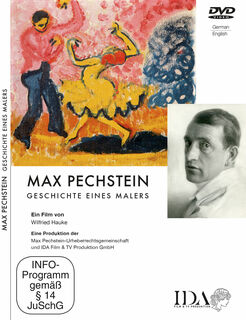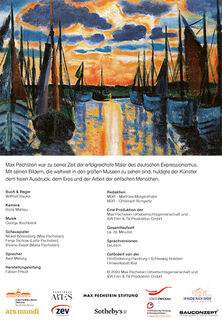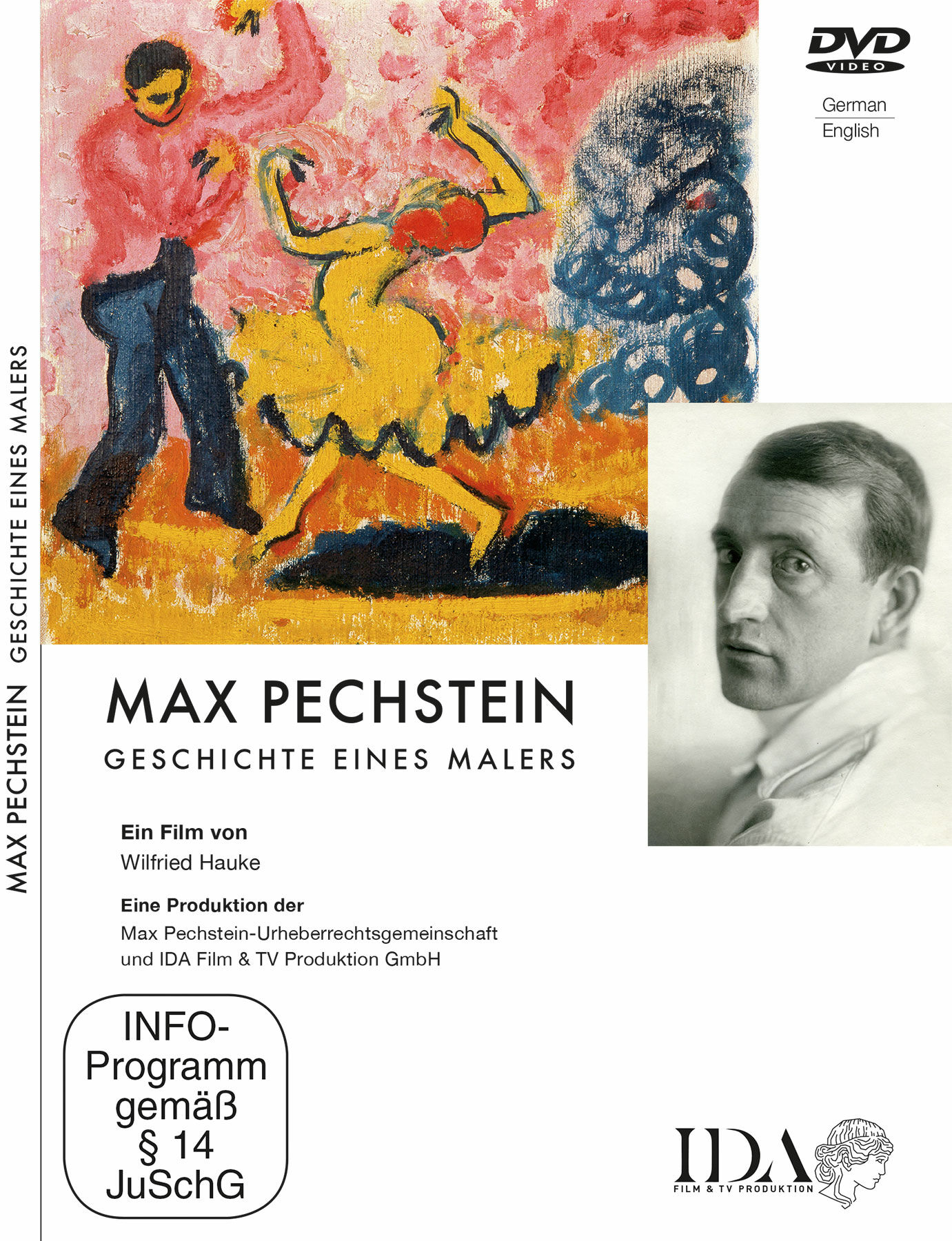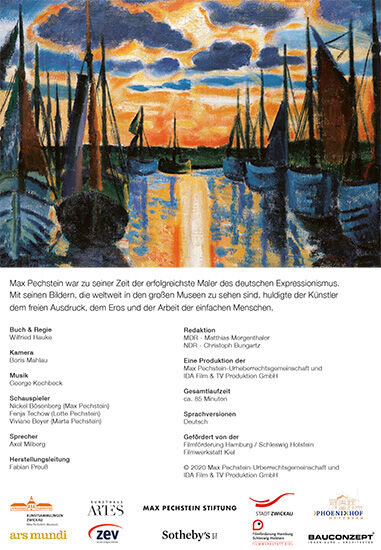DVD "Story of a Painter"
DVD "Story of a Painter"
Quick info
length approx. 85 minutes | language: German and English
Detailed description
DVD "Story of a Painter"
Max Pechstein was the most successful painter of German Expressionism in his time. The artist paid homage to free expression, the Eros and the work of the ordinary people with his paintings, which today can be admired in major museums around the world.
The film "Max Pechstein. Story of a Painter":
The first documentary film about the great painter begins in 1909 with Pechstein's breakthrough as a freelance artist in Nidden, which was still East Prussia at the time. The film captures the first half of the 20th century like a kaleidoscope, with light and shadow, artistically and politically. With newly discovered photos and largely unknown historical film material, the "worker-artist" Max Pechstein is shown at the most significant places and in the greatest crises of his life. In addition to Dresden, Paris and Berlin, Lithuania and Poland, it is above all Pechstein's Saxon hometown of Zwickau to which the film captivates the viewer with touching scenes.
The story of Max Pechstein is told on the one hand from the perspective of the painter, how he saw this time, how he experienced memory and how he understood the task of his art. On the other hand, in another storyline, the film reflects the memories of his grandchildren Julia and Alexander Pechstein about their grandfather and his wives Lotte and Marta. And it follows the great-granddaughter Dunja Pechstein to New York, where the painter had to live involuntarily in exile after fleeing from the Pacific paradise of Palau.
The internationally celebrated ballet choreographer John Neumeier gives a particularly deep insight into the creative world of the painter Max Pechstein with his very own "double view" as an artist and expert on the visual history of dance.
Written & directed by Wilfried Hauke. Narrator Axel Milberg. Total running time approx. 85 minutes. Language: German and English. © 2020 Max Pechstein copyright community and IDA Film & TV Produktion GmbH.
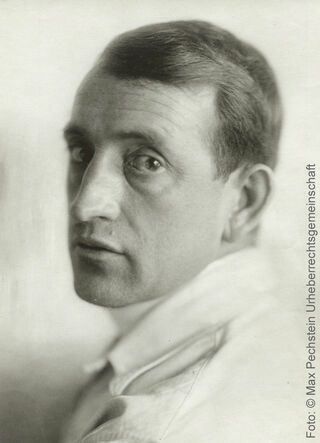
About Max Pechstein
1881-1955
Max Pechstein is considered today, as he was then, one of the most important representatives of German Expressionism. In spring 1906, he joined the artists' group "Die Brücke", which had been founded the previous year by Kirchner, Heckel, Schmidt-Rottluff and Bleyl. In the field of graphic art, he produced an oeuvre of over 850 woodcuts, lithographs and etchings in addition to his paintings.
What Tahiti was to Paul Gauguin, the Baltic Sea coast was to Max Pechstein: a paradise where he found peace, but above all great inspiration. From 1909 onwards, he travelled several times to Nidden on the Curonian Spit, where Lovis Corinth had worked as a young art student more than a quarter of a century earlier. However, when the Treaty of Versailles placed the Curonian Spit under Allied administration in 1920, the way there was blocked. In his own words, Pechstein had to "once again go in search of a spot of earth that was not overrun by painters, tourists and bathers". He found it in Leba, where from then on he spent his summers on a regular basis.
"For more than twenty years Max Pechstein went to the Baltic coast every summer, first to the Curonian Spit, then to Pomerania, which naturally connected him closely to our house. When he rented a room here with his first wife in 1921, he had no idea how attached he would soon feel to the small harbour town of Leba, for he fell in love with Marta Möller, the daughter of his innkeeper. The pristine nature with its beach lakes and the fishing boats in the harbour, the pipe in his mouth, tanned and the anchor tattooed, those things stayed with the passionate angler Pechstein until the end of his life, even when he and his wife could no longer go to Pomerania after the Second World War." (Dr. Birte Frenssen, Deputy Director at the Pomeranian State Museum in Greifswald)

